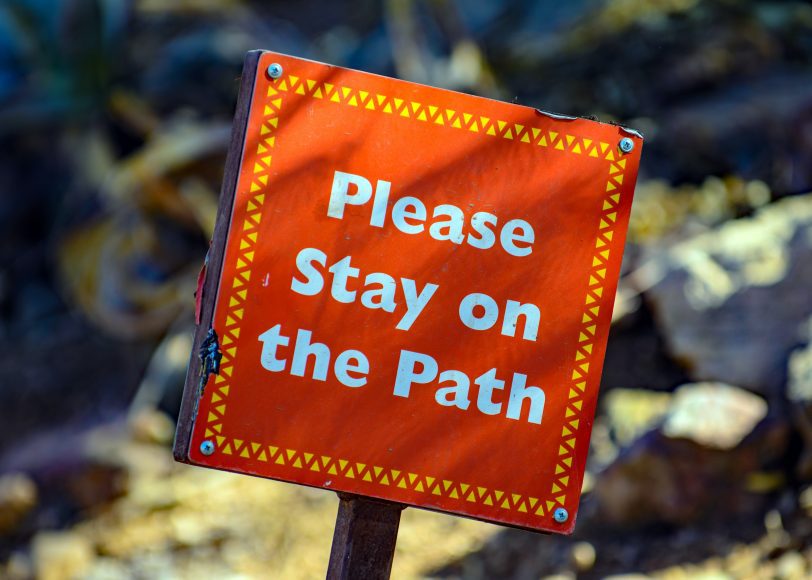Hey! I’m back! If you remember, I’ve set out on a quest to find the perfect business self-help book, and I’m bringing you my results in a series of blog posts. Up first, I have two very different books: The 4-Hour Workweek by Timothy Ferriss and Untamed by Glennon Doyle.
Let’s dive in!
Book 1: The 4-Hour Workweek by Timothy Ferriss
About the Author: Timothy Ferriss is a “lifestyle guru” and very popular podcaster. He describes himself as “an early-stage technology investor/advisor,” but his primary influence has been through writing and talking about business strategies.
Book Synopsis: The 4-Hour Workweek promises to break people free from the “rat race” and help them reconceptualize the value of their labor, and the way that work fits into their lives. As the title suggests, it’s all about getting time back so you can choose how you spend your life.
Why I Read It: I’m starting my series out with this book because it’s one of the first that I read in the business self-help genre. I picked it because recommendations for it are everywhere, and it’s a New York Times best-seller. I assumed that popularity meant it had good advice — as you’re about to see, that was a bad assumption on my part.
Key Takeaways: I’m going to be blunt. I hate this book.
If this is what it takes to get ahead, I’ll stay behind.

Ferriss offers “tips and tricks” to avoid “unnecessary” work so that your time is spent only on what benefits you personally. Some of these tips and tricks include creating fake profiles on your business page to make it seem like more people work for you than actually do, outsourcing undesirable tasks to underpaid laborers in distant countries with little concern for their well-being or the ethics of the decision, and finding every loophole he can to get ahead.
One illustrative example is when Ferriss, driven only to see if he could pull it off, dehydrated himself to qualify for a Chinese kickboxing competition in order to weigh in three classes under his actual weight. Once he got into the fray, he exploited a loophole about falls to win by technical knockout. He simply focused on knocking his opponent over enough (who, remember, was much smaller relative to Ferriss than he should be for fair competition) rather than actually learning the sport. That pretty much sums up what I took away from Ferriss’ book as a whole.
Cheat (or get as close to cheating as you can) and avoid the work. That’s it. That’s the advice. And people just love and recommend it.
How it Helped Me: I’m a firm believer in learning from everything — even when I hate it. Here’s what I learned from The 4-Hour Workweek.
I am not in business because I’m trying to retire to the beach by 40. I am looking for a quiet, sustainable success that allows me to do work I love (and really do that work) for many years to come. I have no interest in get-rich-quick schemes or exploiting loopholes to take myself out of the “rat race” if the “rat race” means doing meaningful work. I’m glad I read Ferriss’ book first. It helped me avoid reading many, many, many books in a similar vein that wouldn’t have served my purpose.
Who Should Read It: Aspiring con artists, I guess?
Who Should Skip It: Honestly, everyone. I can’t stand this book.

Book 2: Untamed by Glennon Doyle
About the Author: Glennon Doyle fascinates me. She writes frankly and openly about her previous battles with bulimia and alcohol addiction. Today, she’s a very popular author and activist. She writes a personal memoir in a self-help style that’s aimed at turning her life lessons into more universal applications.
Book Synopsis: As she recovered from addiction, Doyle had a thriving career as a Christian lifestyle blogger who shared tips on marriage. When it turned out her husband was cheating on her, she wrote another book about why she decided to stay with him. While on tour for that book, she met and fell in love with a woman, left her husband, and basically rewrote the entire blueprint of her life. That part of the story is what Untamed is about.
Doyle writes about giving up our “training” to become fiercely ourselves. She refers to a kind of internal Knowing that will always guide us to the truth if we go deep enough and listen to it.

Why I Read It: Wait a minute, you might be saying, this doesn’t sound like a business book! Fair point. It’s probably a little outside the scope of the stated genre, but I needed to give you a palate cleanser after starting with Ferriss.
Untamed provides some meaningful and deep perspective on what it means to live life on your own terms. In some ways, it shares that with The 4-Hour Workweek. Both are about unapologetically deciding that you don’t have to follow the rules.
The rules broken in Untamed, though, aren’t the same as the ones broken in The 4-Hour Workweek. In Untamed, Doyle writes about Alicia Keys publicly declaring that she had given up makeup and then getting “caught” by Adam Levine putting on lipstick. When Levine snarkily questioned her, Keys simply responded, “I do what the f**k I want.”
How it Helped Me: Starting a business, entering the gig economy, giving up a traditional work structure — it all takes guts. You’re going to have to break the “rules” — unstated and stated — to make it.
I do worry that Doyle has a bit of an overreliance on internal Knowing that veers too far to the individual. I think it’s important that we — especially those of us who have lived in a bubble of privilege — spend time listening to voices other than our own, and while it seems like Doyle personally works hard to do that, her advice — taken in isolation — could provide an excuse to avoid anyone else’s input.
That said, I find value in this book because it provides powerful metaphors with lasting impressions that I can call upon when I need to remind myself that doing it different isn’t doing it wrong.
Who Should Read It: Those who need some help finding themselves and being confident in choosing a path that’s not what they imagined.
Who Should Skip It: People who are already confident that they’re doing the right thing and are looking for more practical tips on how to do it more effectively. Also, people who aren’t particularly drawn to personal, emotional writing.
Final Thoughts
Self-employment is an unconventional path — especially for working mothers from working-class backgrounds (which is what I am). I do need some help understanding that breaking the rules of society and going against expectations I had internalized is okay. Without that kind of self-permission to go off the beaten path, I’d feel a lot more doubt and spend too much of my energy questioning my decisions rather than making them.
Both of these books aim to tackle that problem, which leads me to believe it’s not an uncommon issue.
Putting these books side-by-side tells me that there are ways I’m willing to break the rules (more like Alicia Keys) and ways I’m not (I won’t be dehydrating myself into a different weight class).
We can break the rules without going against our own ethical standards. Make sure you know what yours are because no one else is going to be there to hold you to them when you’re out on your own.










